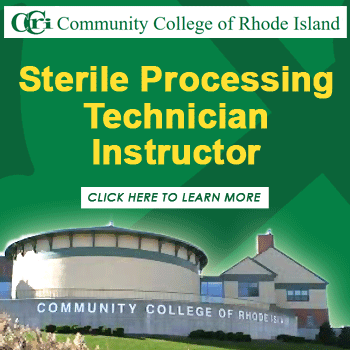
Police Officer (IVC – Substitute)
Job Description
Application Instructions:
- Complete all sections and fields on the application and attach all required documents – incomplete applications may not be considered.
- Include all relevant education, training, and/or experience on the application.
- Do not include any personally identifiable, confidential, or otherwise unrequested information that does not pertain to job related factors (e.g., social security number, date of birth, pictures, etc.) on your application or attached documents.
- For job postings with a close date, all applications received by 11:59 PM (Pacific Time) on the job posting close date, will receive consideration.
- For job postings with an initial screening date, all applications received by 11:59 PM (Pacific Time) on the job posting initial screening date, will receive priority consideration; however, typically the job posting will remain open, and continue to accept applications, until the position is filled.
- For job postings requiring professional references, include at least three (3) professional references from the following categories:
- Current department chair(s) (for faculty) or supervisor(s);
- Previous department chair(s) (for faculty) or supervisor(s) (from within the past five (5) years);
- Master’s thesis or Doctoral Dissertation advisor or supervisor (for faculty);
- Colleague(s) or co-worker(s) who can address professional competency and skills relevant to the position; and/or
- Other professional references.
Please note, professional references are typically contacted when a candidate is selected for, or as a finalist for, a position.
Description
Class specifications are intended to present a descriptive list of the range of duties performed by employees in the class. Specifications are not intended to reflect all duties performed within the job.
SUMMARY DESCRIPTION
Perform a variety of law enforcement and security related duties to ensure the safety of students, faculty, staff and visitors, and the security of college property and facilities.
SUPERVISION RECEIVED AND EXERCISED
Receives direction from the Chief of Police or the Deputy Chief of Police.
REPRESENTATIVE DUTIES
The following duties are typical for this classification. Incumbents may not perform all of the listed duties and/or may be required to perform additional or different duties from those set forth below to address business needs and changing business practices.
Perform law enforcement and crime prevention work, to include patrolling college properties in an effort to proactively preserve law and order and achieve positive public relations; respond to public safety emergencies, complaints, concerns or questions and administer proper procedures to ensure public safety; conduct criminal investigations; enforce parking regulations, control and direct traffic, to include respond to and conduct traffic accident investigations; inspect and maintain the security of college buildings and facilities.
Provide public assistance; participate in community service activities; use safe work practices and procedures, and provide customer service.
Prepare applicable crime and incident reports.
Perform a variety of technical and administrative tasks in support of the Department.
Maintain and clean equipment.
Maintain visible patrols of College property and surrounding areas to deter criminal activity.
Identify and investigate such criminal activity, safety and fire hazards and other incidents/complaints.
Respond to life and property emergencies; responsible for immediate evaluation of the emergency and notification of emergency support personnel; perform self defense measures.
Initiate and may complete follow-up investigations of felonies, misdemeanors, motor vehicle incidents and College policy violations.
Prepare written reports, affidavits, warrants and memoranda for transmittal to Orange County Court, Department of Motor Vehicles, College departments and other law enforcement agencies.
Maintain law enforcement presence at College and District functions; provide escorts of negotiable assets for College departments.
Serve as presenter to College community in self-defense measures, personal safety awareness, and crime prevention.
Provide additional patrols via mountain bicycle for strategic areas of campus to include pedestrian routes. Operate police vehicle on/off campus.
WORK ENVIRONMENT AND PHYSICAL DEMANDS
The work environment and physical demands described here are representative of those required by an employee to successfully perform the essential functions of this job. Reasonable accommodations may be made to enable individuals with disabilities to perform the essential functions.
Work Environment:
At least half of each week requires exposure to sensory extremes. Several times weekly, exposure to chance of injury or loss of life, which can be substantially controlled by use of significant safety precautions.
Physical Demands:
Sustained posture or intense attentiveness for prolonged periods. Light lifting (less than 30 lbs.), some walking, pushing, pulling, on a regular basis.
ESSENTIAL FUNCTIONS OF PHYSICAL AND MENTAL PERFORMANCE
These are tasks which are considered minimum standards of physical and mental performance which are required in order to successfully hold the position for which they were codified. Within each category discussed, examples are provided of typical circumstances, tasks, or activities, but are not all-inclusive. These essential tasks are distinct from published “job dimensions” also considered essential for this position.
Physical/Manipulative Abilities Relating to Major Life Activities
Hearing: The ability to hear normal speech and other audible events, even in combination with other environmental noise. This necessarily includes hearing voices transmitted by radio and telephone, as ell as hearing and distinguishing sounds associated with criminal activity (i.e., gunshots, cries for help, glass breaking, alarm bells ringing, tires squealing, etc).
Seeing: The ability to read or see objects under ambient, limited, or artificial lighting and at a reasonable distance with sufficient clarity to permit their recording or accurate description (i.e., persons, vehicles, license numbers, addresses, street signs, items of property, written messages, printed material, etc.).
Speaking: The ability to speak clearly in English and to be understood by others under normal or highly stressful circumstances, either directly or through amplified, radio, or telephonic transmission.
Moving, walking, sitting, touching: The ability to alternatively move from one place to another, to change from seated to standing positions, to securely grasp objects as required:
Ability to operate a motor vehicle, including turning a steering wheel, operating acceleration and braking devices, opening and closing doors, operating seatbelts or other equipment including switches, radios, and the like while speaking, seeing, and/or hearing at the same time.
Ability to traverse irregular surfaces, including under varying climactic conditions, climbing steps, scaling walls and fences, using ladders, crawling through restricted spaces, and traversing graded surfaces, either at a normal or accelerated gate and when approaching, pursuing or retreating from persons, objects, or locations.
Ability to restrain violent or uncooperative persons, including the mobility and agility to apply appropriate restraining techniques against one or more persons under both passive and combative circumstances; to affix appropriate restraining devices upon others; to temporarily subdue others without resorting to excessive or unreasonable force.
Ability to hold and/or operate furnished implements or other equipment, including pens, pencils, typewriter or computer keyboard keys under varying lighting conditions and perhaps in concert with holding or operating other items of equipment (i.e., flashlights); an ability to hold, operate, and accurately control an approved firearm.
Ability to move and/or carry heavy objects, including lifting, carrying, or assisting other person’s unable/unwilling to move themselves.
Ability to grasp and operate non-furnished devices, including door latches, light switches, or other mechanical devices encountered at locations where police services are required.
Mental/Cognitive Abilities:
Ability to recall detail, including the ability to accurately recreate witnessed events, conversations, or readings and to record those recreations in written and/or oral form.
Ability to interpret and apply oral or written material/instructions, including the ability to listen to or read abstract or directive instructional material and to apply that data correctly to practical circumstances.
Ability to remain alert and coherent, including the ability to take action or to decide between alternative courses of action under routine, highly stressful, or environmentally difficult conditions; an ability to remain alert at varying hours after scheduled rest or for extended periods of an emergency or unanticipated
Each of these essential tasks must be performed individually and unassisted by other persons, since this class of employment requires an ability to work alone. However, the ability to perform these tasks shall not be limited by the assistance of enhancing devices which are reasonably free from anticipated malfunction, loss, or destruction during normal or foreseeable circumstances. Performance of some of the tasks may, in individual situations, also be aided by the presence of items constituting reasonable accommodation of a disability (i.e., eyeglasses, contact lenses, etc.).
QUALIFICATIONS
The following generally describes the knowledge and ability required to enter the job and/or be learned within a short period of time in order to successfully perform the assigned duties.
Knowledge of:
Principles, practices, methods and procedures of law enforcement and traffic control.
Pertinent Federal, State and local laws, codes, and regulations.
Appropriate responses for emergency situations.
Use and care of firearms. Basic first aid and CPR.
Ability to:
Interpret and apply Federal, State and local policies, procedures, laws and regulations.
Administer procedures related to safety and security.
Work independently in the absence of supervision.
Communicate clearly and concisely, both orally and in writing.
Establish and maintain cooperative working relationships with those contacted in the course of work.
EXPERIENCE AND TRAINING GUIDELINES
Any combination of experience and training that would likely provide the required knowledge and abilities is qualifying. A typical way to obtain the knowledge and abilities would be:
Experience:
Two years of law enforcement or security experience.
Training:
Equivalent to an Associate of Arts degree with major training in law enforcement, security or a related field.
LICENSE OR CERTIFICATE
Possession of a current P.O.S.T. Basic Certificate (received after completing Field Training as a Police Officer for one year); possession of a valid California Driver’s License, and a current and valid First Aid/CPR certificate.
MEDICAL/PSYCHOLOGICAL TESTING AND BACKGROUND CHECK
Must pass a medical and psychological test as required by Government Code Section 1031(F) and required to submit to a thorough background investigation pursuant to Government Code Section 1031 to comply with the standards established by the Commission for P.O.S.T.
Supplemental Information
Work Schedule: TBD – Schedule and shift vary and are subject to change in accordance with the department's needs.
Hours per Week: Up to 25
Employment Conditions and Information:
This is a short-term, temporary, hourly Non-Bargaining Unit (NBU) assignment, not to exceed 160 days and 960 hours per fiscal year (July 1st through June 30th). Short-term, temporary NBU positions may only be used on an intermittent, seasonal, or project basis. Education Code Section 88003 states "Short-term employee means any person who is employed to perform a service for the district, upon the completion of which, the service required or similar services will not be extended or needed on a continuing basis.”
After successful completion of the onboarding requirements, an individual may be employed by the South Orange County Community College District (SOCCCD) as a short-term, temporary NBU employee. Employment will be on an “if and as needed” basis, as determined by the SOCCCD. The assignment may be shortened or extended at any time, due to departmental needs, with little to no notice. NBU employment is at-will, and either party may terminate this working relationship at any time. Neither party shall be required to provide any reason for the separation. NBU employees shall not have reemployment rights or recourse to petition to be reinstated.
NBU employees are limited to working in a single position for a single department and site (assignments are onsite only).
NBU employees are paid on a monthly basis. The payroll reporting period is from the 15th of the first month to the 14th of the second month. NBU employees are paid on the 10th of the third month.
Example: For the following reporting period: September 15th through October 14th, the NBU employee will be paid on November 10th.
NBU employees who work more than 1000 hours per fiscal year are required to contribute to the California Public Employees Retirement System (CalPERS), through payroll deduction. The SOCCCD does not intend to employ NBU employees for more than 960 hours during any fiscal year.
Special COVID-19 Notice:
Interviews may be held in-person (following all necessary precautions) or in a virtual format. Employees must reside in California while employed with the South Orange County Community College District (SOCCCD), even during offsite work.
The SOCCCD is committed to protecting the health and wellbeing of students, faculty, staff, managers, and the communities it serves. More information can be found on the SOCCCD website by visiting https://www.socccd.edu/communications/covid-19-information.
Notice to all Candidates for Employment:
The Immigration Reform and Control Act of 1986, Public Law 99-603, requires that employers obtain documentation from every new employee which authorizes that individual to accept employment in this country. The SOCCCD will not sponsor any visa applications.
California Public Employees Retirement System and California State Teachers Retirement System:
A California Public Employees Retirement System (CalPERS) retiree may not accept employment until after the first 180 days of retirement. Anyone retired from CalPERS accepting permanent employment with the SOCCCD will be required to reinstate as an active CalPERS member. Please contact CalPERS for additional information regarding your retirement status.
Any active vested member of California State Teachers Retirement System (CalSTRS), who accepts employment with the SOCCCD to perform service that requires membership in CalPERS, is eligible to elect to continue retirement system coverage under CalSTRS
Disability Accommodations:
If you require special accommodations in the application and/or evaluation process, please notify Human Resources at least two (2) business days prior to the job posting close or initial screening date, by either calling (949) 582-4850 or sending an e-mail to hrinfodesk@socccd.edu.
Attendance Requirement:
All SOCCCD employees are required to report to work on a regular and consistent basis, as scheduled, to assigned job.
Campus Crime and Safety Awareness:
Information regarding campus crime and safety awareness can be found at www.ivc.edu or www.saddleback.edu. Paper copies are available in the Human Resources office upon request.
Diversity, Equity, Inclusion and Equal Employment Opportunity:
The SOCCCD is committed to creating an academic and work environment that fosters diversity, equity, and inclusion (DEI) and equal employment opportunity (EEO) for all, and ensures that students, faculty, staff, and managers of all backgrounds feel welcome, included, supported, and safe. Our culture of belonging, openness, and inclusion, makes the SOCCCD a unique and special place for individuals of all backgrounds.
The SOCCCD is looking for equity and inclusion-minded applicants who represent the full diversity of California and who demonstrate a sensitivity to the understanding of diverse academic, socioeconomic, cultural, disability, gender identity, sexual orientation, and ethnic backgrounds present within our community. When you join the SOCCCD, you can expect to be part of an exciting, thriving, equity-focused, and inclusive community that approaches higher education with the lens of social justice and collaboration among students, faculty, staff, managers, and community partners. In deciding whether to apply for a position at the SOCCCD, you are strongly encouraged to consider whether your values align with the SOCCCD's mission and goals for DEI and EEO.
THE SOCCCD IS AN EQUAL OPPORTUNITY EMPLOYER
*Please mention you saw this ad on DiversityInCommunityColleges.*
Be Seen By Recruiters at the Best Institutions
Create Your FREE Profile Now!
Community Colleges Jobs in Popular Cities





